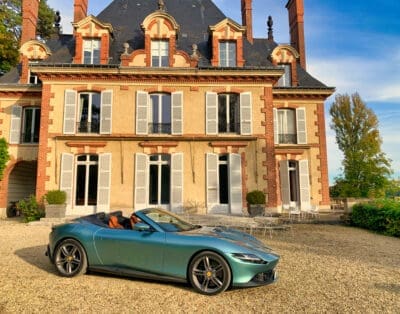A Divided Europe Cannot Compete
The European dream is not working because individual EU governments are not fully committed to integration and populations are wedded to parochial perspectives. Economic rivals therefore do not have to divide and rule – because Europe remains firmly divided.
If there is going to be sustained economic growth in continental Europe over the next few years it is going to have to happen between 9am and 5am on weekdays and never at lunch time. Most workplaces are dead at weekends and in countries such as France, Italy and Spain lunchtime has a kind of sanctity — meaning little work is done between the hours of 12pm and 2pm
Although border posts have gone, populations cling to their cultures and linguistic differences. Travel through the narrow tunnel linking France and Spain in the mid- Pyrenees and it will not only be better weather on the other side, but in the border town of Bielsa it will be difficult to find someone who admits to speaking French. On both sides of the border there is a refusal to post town names in the other country and even satnavs decline to recognize destinations until the border is reached.
“After more than half a century the EU remains a fragmented mix of national and local interests all in rivalry with each other” observes Robin Chater, Secretary-General of The Federation of European Employers. “Officials in Brussels can dream of integration, but in reality the members of the EU club are only cooperating to the extent that it suits them.”
The absence of true integration is everywhere to be seen. It has taken years for national air traffic control authorities to accept the principle of “a single European sky”. In 18 countries the authorities persist in taking only direct responsibility for their own air space. Meanwhile both Austria and Poland continue to refuse to apply the Energy Performance of Buildings Directive by ensuring that minimum energy performance requirements are set for all buildings. The European Commission has had numerous meetings with the Finnish government in order to persuade them to set up a race equality organisation in line with the race equality Directive that was passed 14 years ago – yet the government continues to ignore their obligations.
In July, the European Commission took 419 decisions concerning actual and potential infringements and made 14 referrals to the European Court of Justice. According to Robin Chater, “this is hardly a sign of a fully functioning European Community. True integration would give a tremendous boost to business and vastly improve living standards for everyone – but national governments are all too prepared to drag their feet if it suits their petty concerns.”
Meanwhile China — the most rapidly growing economy in the world, with its vast and truly integrated economy — can take advantage of political divisions, over-regulated labour markets and linguistic divides across Europe to build a dominant position. It will become the biggest economy in the world by 2019 and have achieved this largely through a combination of inward investment and companies exploiting its huge domestic economy.
For Robin Chater the writing is already on the wall. “In the next phase of growth large Chinese companies will establish themselves as multinational entities, dictate both the terms of business and language that we shall all have to learn and, within a very brief period of time, no western market or brand will be safe from strenuous competition from organisations that today are barely known outside the Chinese marketplace.”
He warns that “the continued fragmentation of Europe — arising largely from the existence of national boundaries and refusal to accept a common lingua franca — will leave its markets exposed to challenges from outside. The world is about to witness a huge change in political, cultural and economic orientation – whilst the governments of tiny entities in Europe refuse to recognise the bigger picture and people everywhere in the EU continue to think largely in parochial ways.”








